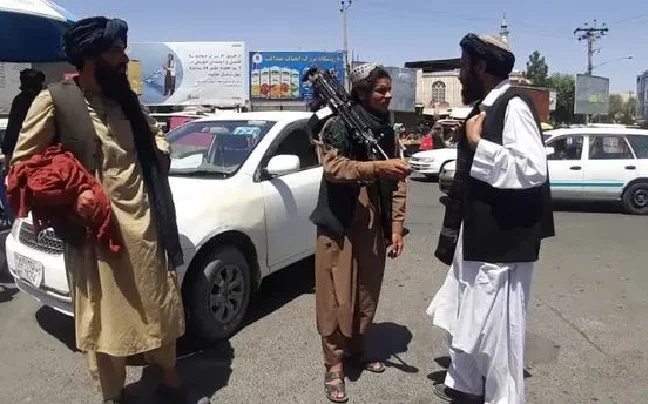On Sunday morning, 15 August, the Taliban entered the outskirts of Kabul, the capital of Afghanistan. This brought to an end a lightning offensive that saw an entire country conquered without a fight in a matter of weeks. How could this have happened so quickly?
The Taliban’s military coup in Afghanistan, especially last week, was akin to stringing beads. One provincial capital after another fell into their hands with lightning speed. After Kandahar, their old capital Herat, and Rarinkot (with Kamp Holland) in Uruzgan, it was the turn of Mazar-e Sharif and Jalalabad, and the road this weekend lay open to their final prey: the capital Kabul.
In Washington and European capitals, government leaders and military commanders also followed the developments on the battlefield with astonishment.
The advance of the Taliban was so rapid that the situation on military staff maps changed within the hour. Are the extremists now advancing toward Jalalabad? Oh, do they have that in hand already! But why did the Afghan security apparatus go down so quickly in the fight with the Taliban?
Many years of training and arming to make government soldiers and police officers stand on their own two feet were lost in days. In many provincial towns, hardly a shot was fired. Soldiers fled or defected, local administrators threw in their lot with the Taliban. All modern weaponry ended up in the hands of the Taliban undamaged.
While everything looked so good on paper, the United States alone has spent $83 billion since 2001 to build up the Afghan army, air force, commando troops and police. Afghan administrators also had plenty of time to prepare for the Taliban offensive.
The withdrawal of the international force accelerated this year due to intervention by US President Joe Biden, but the government in Kabul could already be gearing up for a fight on its own since 2014. In that year, it was given the lead in the fight against the Taliban.
Western instructors also saw what they wanted to see: the training and equipment were fine. The soldiers were hardened, the elite troops not inferior to those of other armies. But a major problem was soon exposed: the management of the security apparatus.
The central government in Kabul was making a mess of things. Especially under President Ashraf Ghani, the Ministries of Defense and Interior were bastions of corruption and lack of leadership.
The departments undermined morale among the army and police. Police officers, for example, have not received a salary for months.
A salary that is already meagre compared to fighters received by the Taliban: a soldier or police officer should receive $300 in salary each month, the average Talib gets double or more. Supplies from Kabul were also a disaster.
In many areas, troops lacked sufficient water and ammunition. Weapons were sold on the black market and often ended up in the hands of the Taliban.
An Australian author and analyst, Lynne O’Donnell, who spent between 2009 and 2017 working in Afghanistan as bureau chief in Kabul for The Associated Press and the French news agency AFP, is particularly focused on President Ghani. She calls him “a micro-manager” and “a control freak.
Ministers, district governors and police chiefs were replaced at high speed, leaving no continuity in governance. In the meantime, large sums of money disappeared from the state coffers.
Some of the money was put into expensive country residences abroad. The president and his two leading advisors, Hamdullah Mohib (security policy) and Fazal Mahmood Fazli (his chief of staff) are known as the “republic of three men”.
Many top bureaucrats have dual passports, are often abroad, and do not speak the two main Afghan languages, Dari and Pashto, adequately.
According to Enayat Najafizada, founder of a think tank in Kabul, this led to a huge gap between leaders and the population. Ghani’s re-election in 2020 was accompanied by corruption.
“Fair elections give you legitimacy, but then you have to deliver, or people will turn against you. And there has been no delivery for five to six years. There were divisions, and people were given preferential treatment. Ghani used to say that he knew his country well. Maybe in theory, in practice, it was a disaster,” Najafizada said.
This disastrous policy meant that soldiers and police officers could but would not when it came down to it against the Taliban. They did not want to fight for Ghani and the government.
They defected or went home because they were worried about their families, their relatives. Those who did fight did so because they had no choice.
A total lack of morale left a handful of the 300,000 soldiers and officers (on paper!) who wanted to fight and allowed the Taliban to march on Kabul with two fingers in their nose.
